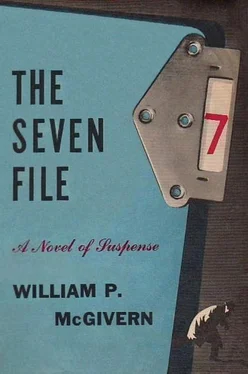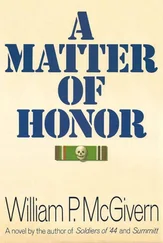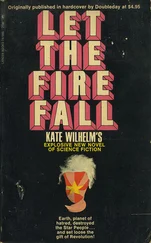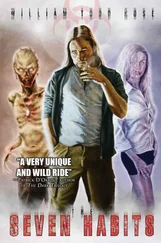This was his hobby — but genealogy was his passion. He had been collecting family trees for years; against the wall three steel filing cases held the results of this mania.
Creasy read the society pages from the Boston, New York and Philadelphia papers avidly, making careful notes of births and marriages, of who went where and who was doing what in the world of fashionable people. Then, like an excited ferret, he scrambled after those names in his files, tracking them through labyrinthine breedings and connections, to their original source, sniffing out frauds and phonies, the nouveau rich, the pretenders and climbers. Most of them were common as dirt, he had found out; it didn’t matter to him whether the blot was one generation removed or thirty — bad blood was bad blood and time wouldn’t purify it. He had made a careful study of the Bradleys, of course, and had discovered (as he had expected) that the tree was full of bad fruit.
He was thinking of this as he stood up from his lunch. Blackguards and rogues... and the latest issue from that rotten trunk put on such airs. He and his lady! They might have paid some of their debt. In cleansing fear and pain. But no, not even that. They simply paid the ransom — as they would pay a light bill — and back came the baby.
Creasy moved to the window. Yes, their blind was still down. It didn’t seem to matter. Rain was falling, he saw, and this increased his annoyance. He hated wetness of any kind. But he must go out to phone Grant.
Creasy put on rubbers, then wound a scarf around his neck and got into his raincoat. Taking his umbrella and gloves, he left his room. When he stepped outside he shivered involuntarily at the impact of the cold wet wind. He put up his umbrella and picked his way down the steps like a cat, avoiding the shallow puddles and flinching at the feel of the damp iron railing against his hand. There would be no point in trying to find a cab; he had resigned himself to walking.
But as he reached the foot of the stairs a small city miracle occurred; a cab stopped directly in front of him to let out a fare. Creasy called to the driver in a high, excited voice, and bobbed his umbrella up and down to catch his eye. The cabby glanced at him and nodded, as his passenger, a big man in a tweed topcoat, climbed out of the taxi. The big man grinned as he walked by Creasy. “She’s all yours. Luck, eh?”
“Yes,” Creasy said.
The rear door of the cab was open, the interior was a warm, dry haven awaiting him — but he hesitated, glancing uneasily after the man in the tweed coat.
The driver said patiently, “Let’s go, mister.”
“Yes,” Creasy said, stepping carefully down from the curb. The passenger had gone into an interior decorator’s shop next door. Quite normal...
But suddenly Creasy felt a small warning chill go through him. This cab — so opportune, so unexpected — was that coincidence? He hesitated again, staring at the casual, everyday look of the street. His eyes strayed across the brown bulk of the church, moved up to its steeple and then switched to the second-story windows on the opposite side of the block.
“All right, all right,” the driver said. “I got a living to make, Mac.”
“Never mind,” Creasy said curtly.
The driver reached back and closed the door of his cab with a crash. “Just so I know,” he muttered, and drove off with a roar of power.
Why take a chance? Creasy thought, as he walked with mincing haste toward the comer. You never lost if you never gambled... perhaps he was being overly cautious, but he didn’t think so. The arrival of the cab might have been simple good fortune, but he knew it paid to look carefully at the unusual, the unexpected, the seemingly lucky break. That was how they caught you. Enough rope...
Creasy walked to the intersection of Third Avenue where, after a reassuring wait of several minutes he succeeded in hailing another cab. The driver had turned into Thirty-first Street before catching his signal, so they had to go around the block — but Creasy knew the extra twenty cents was a small price to pay for being careful.
As they passed the Bradleys’ he glanced out at the closed blind, and then settled himself comfortably and lit a cigarette.
It was shortly after two on Monday afternoon that the phone sounded through the oppressive silence of the lodge. Grant lifted the receiver, frowning nervously, but after a few seconds his expression cleared, and he said, “That’s fine, everything’s going right on schedule.” He winked at Duke who was sitting at the fireplace, and made a circle with his thumb and forefinger. “Okay now, there’s nothing to worry about. Nothing at all. You just remember what I’ve told you... that’s right. Fine... fine.”
Grant put the receiver back in place and slapped the table with the flat of his hand. He began to laugh then, his voice high and giddy with relief. “Like clockwork, Duke,” he said. “The blind closed right on the dot of twelve.”
“They’ve got the money then,” Duke said.
“Sure they’ve got it; they’re playing ball. We’re going to pull this off, Duke.”
“Great,” Duke said. Since his run-in with Hank in the girl’s room, he had been drinking steadily, sitting and staring into the red eye of the fire. A frown hardened his dark features, and the leaping flames gleamed on the backs of his hands and cast a faint sheen on his thick black hair. “We’re coming to the payoff,” he said.
“That’s right. Tonight Creasy sends a note telling them about the money. The Bradleys get it in the morning. The cash register rings tomorrow night. Creasy picks up the dough, and it’s all over.”
“Except for the loose ends,” Duke said.
“Yeah.” Grant rubbed a hand over his face. “The loose ends.” He glanced at the door to the kitchen; Hank and Belle were in there finishing up the lunch dishes. The nurse was upstairs with the baby. “You got any ideas?” he said.
“It’s pretty obvious, isn’t it?”
They sat close together, speaking so softly that their voices were covered by the crackle of the fire. Duke took a sip of his drink. They were silent, avoiding each other’s eyes. Finally Grant let out his breath slowly. “What are we going to do?”
Duke smiled faintly. “You’re running things. It’s up to you.”
“Don’t clown around.”
“We’ll do what we got to do, Eddie. There’s no choice. Not the way I see it. Maybe you got another idea.”
“No — but how’s it going to look?”
“We’ll make it look all right.”
“Duke—” Grant hesitated, swallowing something in his throat. “You mean both of them?”
“Hold it,” Duke said.
Belle came into the room, carrying a white porcelain dish filled with clean, damp diapers. “I just rinsed these out,” she said. “Takes a little load off the girl.” Belle’s manner was righteous and complacent, but her eyes were slightly glazed over; she was proving something but she wasn’t quite sure what. “Can you move back a bit, Eddie? I want to hang ’em before the fire.”
“For Christ’s sake, we’re talking.”
“All right, you’re talking. It won’t hurt to move your chair, will it?”
“Hang the diapers in the kitchen.”
“They won’t dry, Eddie. I know.”
Duke said quietly, “Take the diapers and yourself back where you came from, Belle. This isn’t a nursery.”
“Well, that’s a fine—”
“Beat it!” Grant said. “Will you do what I tell you? We’re busy!”
“And that’s more important than the baby being clean and comfortable. Sure.” Belle shook her head and wandered back into the kitchen. They heard her say to Hank: “The brain trust is in session in there.”
Читать дальше











